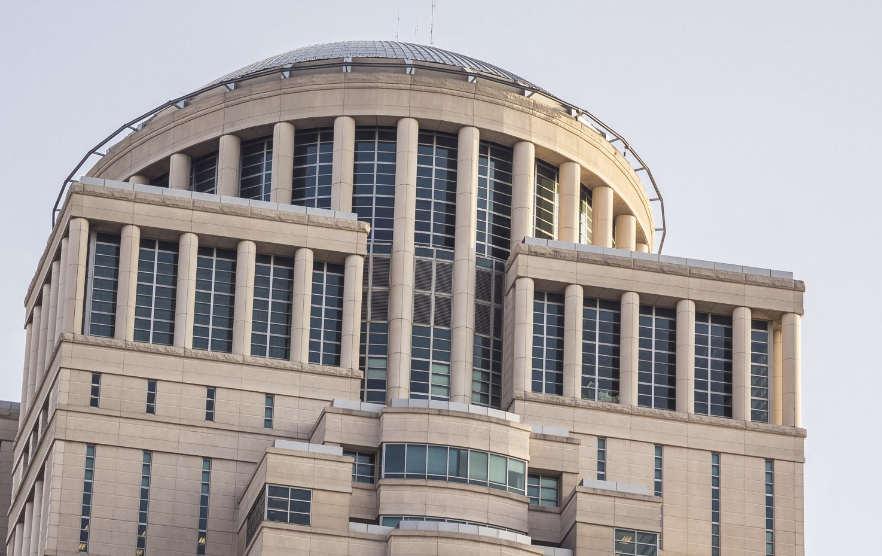
- Details
- By Levi Rickert
Monday’s ruling comes as the result of a redistricting case centered on a challenge originally brought by the Arkansas chapter of the NAACP and the Arkansas Public Policy Panel to Arkansas’ state House map. The ruling said the “text and structure” of the voting rights statute shows that Congress did not give private plaintiffs the authority to sue. The appellate panel affirmed a 2022 ruling by a Trump-appointed federal judge in Arkansas that held only the US Justice Department can bring Section 2 lawsuits.
If the ruling stands, it could prevent the Native American Rights Fund (NARF) from bringing lawsuits on behalf of Native Americans.
Legal experts think the ruling will set up a U.S. Supreme Court case.
Matthew Campbell (Native Village of Gambell on the Saint Lawrence Island in Alaska), deputy director of NARF, is confident Section 2 will stand in the long run.
“For decades and in hundreds of cases, a private right of action has not been a question under § 2 of the Voting Rights Act. In fact, the U.S. Supreme Court just affirmed this year in Allen v. Milligan, 599 U.S. 1 (2023) a Section 2 suit brought by private litigants in Alabama. The Eighth Circuit’s decision is incompatible with that decision.” Campbell said in an email on Monday to Native News Online.
Through the years, NARF has played a significant role in affirming voting rights for Native Americans. Two cases, both in North Dakota, in which NARF brought suit, gained victory for the voting rights of tribes.
Last Friday, a federal judge in North Dakota ruled that the state’s 2021 legislative redistricting maps discriminate against Native voters by “dilut[ing] Native American voting strength.”
The ruling came after the Turtle Mountain Band of Chippewa Indians, the Spirit Lake Tribe, and three Native voters — with assistance from NARF — challenged the map’s legality under the protection of the Voting Rights Act of 1965.
In June 2020, NARF’s Native American Voting Rights Coalition published a 176-page report titled, “Obstacles at Every Turn: Barriers to Political Participation Faced by Native American Voters,” documenting its findings from nine public hearings held among Native voters during 2017 and 2018.
The report cites several factors that discourage political participation in elections. Among the factors are:
- Geographical isolation
- Physical and natural barriers
- Poorly maintained or non-existent roads
- Distance and limited hours of government offices
- Technological barriers and the digital divide
- Low levels of educational attainment
- Depressed socio-economic conditions
- Homelessness and housing insecurity
- Non-traditional mailing addresses such as post office boxes
- Lack of funding for elections
- Discrimination against Native Americans
Monday’s ruling drew disappointment from O.J. Seamans, the co-director of Four Directions, a Native American voting advocacy group.
“This ruling is disheartening but not surprising, although it is worrisome that the courts are now moving towards authoritarianism, which would deny the citizens of this country the right to seek justice to ensure they have equality at the ballot box,” Seamans said. “Welcome to Indian Country America.”
Help us ensure that the celebration of Native Heritage never stops by donating here.
More Stories Like This
Native News Weekly (August 25, 2024): D.C. BriefsUS Presidents in Their Own Words Concerning American Indians
2026 Native American 40 Under 40 Class Announced
Monday Morning: (January 5, 2026): Articles You May Have Missed This Past Weekend
Native News Weekly (January 4, 2026): D.C. Briefs
Help us defend tribal sovereignty.
At Native News Online, our mission is rooted in telling the stories that strengthen sovereignty and uplift Indigenous voices — not just at year’s end, but every single day.
Because of your generosity last year, we were able to keep our reporters on the ground in tribal communities, at national gatherings and in the halls of Congress — covering the issues that matter most to Indian Country: sovereignty, culture, education, health and economic opportunity.
That support sustained us through a tough year in 2025. Now, as we look to the year ahead, we need your help right now to ensure warrior journalism remains strong — reporting that defends tribal sovereignty, amplifies Native truth, and holds power accountable.
 The stakes couldn't be higher. Your support keeps Native voices heard, Native stories told and Native sovereignty defended.
The stakes couldn't be higher. Your support keeps Native voices heard, Native stories told and Native sovereignty defended.
Stand with Warrior Journalism today.
Levi Rickert (Potawatomi), Editor & Publisher


